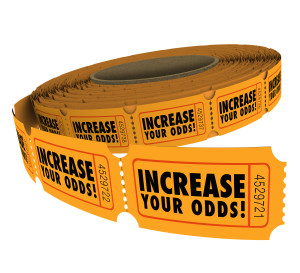Fixes possible for Pennsylvania’s small games of chance debacle

By Andrew Staub | PA Independent
HARRISBURG, Pa. – Barry Zeigler, owner of the Midway Tavern in Adams County, since the 1980s has lobbied for bars to offer small games of chance.
So when Pennsylvania finally gave the OK last year, it was natural for Zeigler and his wife, Ronda, to become the first to snag a tavern gaming license — even if it meant dealing with more than 40 pages of paperwork and start-up costs that reached $11,000, Ronda Zeigler said.
“We don’t have any regrets,” she said. “We knew going into it that it was going to be a long haul for the returns, but we’re OK with that.”
Other business owners haven’t been so quick to put up the money or time to bring raffles, pull-tabs and daily drawings to their bars, given the high costs to apply, buy machines and remain licensed. As of July 1, only 23 licenses have been approved, said Stacy Kriedeman, a spokeswoman with the Pennsylvania Liquor Control Board.
IMPROVING THE ODDS: After losing big on small games of chance in taverns, Pennsylvania state lawmakers are looking at changes to salvage something they thought would bring in big bucks.
That’s far below what lawmakers expected, and it has cost the state big time.
State Sen. Jake Corman, R-Centre, the chairman of the Senate Appropriations Committee, said lawmakers anticipated tavern gaming to net more than $100 million. Instead, it “turned out to not really bring in anything, unfortunately, because of some of the issues with that particular piece of legislation.”
Fixes could be coming.
Lawmakers have been working on a fiscal code that would give the Pennsylvania Liquor Control Board the ability to reduce the license fee from $2,000 to $500.
State Sen. Richard Alloway, R-Franklin, has also introduced a bill that would address major concerns about the arduous application process, threats to valuable liquor licenses and a heavy tax burden that leaves tavern owners with little return on their investment.
First, it would remove the requirement that tavern owners undergo a 15-year FBI background check and review by the Pennsylvania Gaming Control Board. That costs $1,000. It’s also redundant, given that bar owners already undergo a background check by the PLCB to obtain a liquor license and then undergo a review every two years.
Even though tavern games are not related to alcohol, violations can be held against liquor licenses, the lifeblood of a bar. Alloway wants to remove that correlation.
Finally, tavern owners would keep a bigger chunk of revenue from table games under Alloway’s legislation. Now, 60 percent of the profit is paid to the state; 5 percent goes to the local municipality. Taverns keep the remaining 35 percent.
Alloway’s bill would change the split to allow the taverns to keep 45 percent of the revenue, with only 50 percent going to the state. Host municipalities would still get 5 percent of the cut.
“I think it’s going to take a combination of all of the above to make this work,” Ronda Zeigler said.
Alloway did not immediately return a message seeking comment.
For now, the growth of tavern gaming continues to creep along, with only 35 applications received as of Tuesday.
While 23 have been approved, seven others were deemed incomplete and returned to the licensee, and seven more licenses still had to address minor deficiencies, Kriedeman said. Two more are pending with the Gaming Control Board, she said.
Despite the burdensome paperwork and start-up costs, the owners of the Midway Tavern aren’t frustrated to know future applicants might have an easier path. Customers like the games, and the Liquor Control Board has brought up the possibility of future license credits, Ronda Zeigler said.
“We had to start somewhere,” Ronda Zeigler said. “You can’t make the changes if you don’t have your foot in the door.”
Staub can be reached at Andrew@PAIndependent.com. Follow @PAIndependent on Twitter for more.







